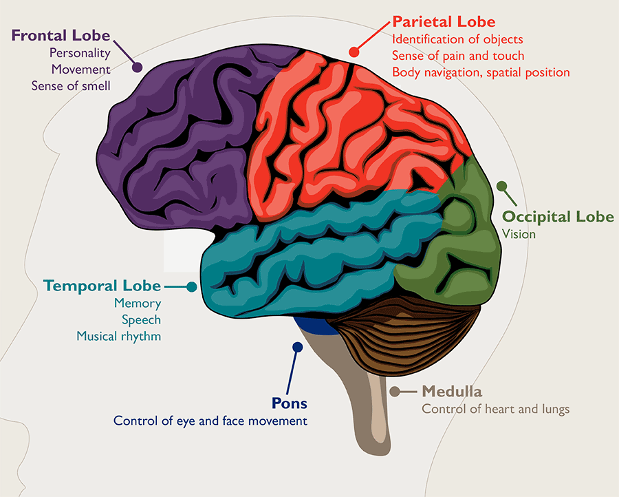Brain Tumor Symptoms & Tumor Specific Symptoms
March 15, 2024
Different parts of the brain control different functions, so brain tumor symptoms will vary depending on the tumor’s location. For example, a brain tumor located in the cerebellum at the back of the head may cause trouble with movement, walking, balance, and coordination. If the tumor affects the optic pathway, which is responsible for sight, vision changes may occur.
The tumor’s size and how fast it’s growing also affect which symptoms a person will experience.
In general, the most common symptoms of a brain tumor may include:

Can you have a brain tumor with no symptoms?
Brain tumors don’t always cause symptoms. In fact, the most common brain tumor in adults, meningioma, often grows so slowly that it goes unnoticed. Tumors may not start causing symptoms until they become large enough to interfere with healthy tissues inside the brain.
Common Brain Tumor Specific Symptoms
Glioblastoma Multiforme
- Headache
- Seizures
- Nausea and vomiting
- Drowsiness
- Changes in personality
- Weakness on one side of the body
- Memory loss
- Speech difficulty
- Changes in vision
Glioma
- Headache, particularly one that hurts the most in the morning.
- Nausea and vomiting.
- Confusion or a decline in brain function, such as problems with thinking and understanding information.
- Memory loss.
- Personality changes or irritability.
- Vision problems, such as blurred vision, double vision or loss of peripheral vision.
- Speech difficulties.
- Seizures, especially in someone who hasn’t had seizures before.
Astrocytoma
- Persistent headaches
- Headaches which are worse in the morning or cause awakening from sleep ( a sign of increased intracranial pressure)
- Double or blurred vision
- Speech problems
- Decreased cognitive abilities
- Grasp or limb weakness
- New seizures
Ependymoma in the brain
- Headaches
- Nausea and vomiting
- Weakness
- Fatigue
- Irritability
- Loss of appetite
- Trouble concentrating
- Mood changes
- Personality changes
- Vertigo
- Blurry vision
- Cognitive impairment
- Falling behind on developmental milestones (for babies)
- Loss of coordination
- Balance problems
- Difficulty walking
- Seizures
- Hydrocephalus
If an ependymoma is located in the spinal cord, symptoms can include:
- Neck stiffness
- Neck weakness
- Neck or back pain
- Muscle weakness in one or both legs
- Bladder and bowel dysfunction or loss of control
Diffuse Intrinsic Pontine Glioma (DIPG)
- slurred speech
- odd eye movements
- difficulty swallowing
- trouble maintaining balance
- drooping of one part of the face
- weakness in extremities
- headaches (often worse in the morning) accompanied by nausea and vomiting
Medulloblastoma
- Headaches (often tend to be worse in the morning)
- Balance problems or clumsiness
- Changes in thinking ability
- Dizziness
- Double vision or other eye problems
- Tiredness and lack of energy (fatigue)
- Nausea and vomiting
- Hearing loss
- Irritability and changed behavior
If you are experiencing any of the symptoms mentioned above, it is important to consult your doctor for further information and guidance. Your doctor can provide a proper diagnosis, recommend appropriate treatment, and address any concerns you may have regarding your health.